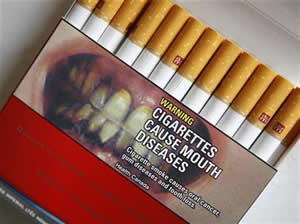

Source: Flickr
It’s fairly common knowledge that the tobacco industry has engaged in nefarious practices, such as secretly verifying the addictive quality of nicotine and strategizing how best to get kids to smoke. If you take a moment to read some of the actual memos and reports that chronicle these goings on, I think you’ll find it’s much worse than you imagined.
The once-secret documents of the tobacco industry are available at Tobacco Documents Online.
As part of the Master Settlement Agreement between the States and the tobacco companies, the industry was required to make the documents used during the trials available. They posted the documents on their websites, but searching required going to several different sites, each with a different interface.
That same agreement required the industry to turn over a snapshot of their sites as of July, 1999. Tobacco Documents Online (TDO) spent over a year standardizing the document descriptions to allow uniform searching, and through the American Legacy Foundation, obtained tapes of the document images. TDO offers powerful searching across all the companies, access to high-quality images, OCR, and the ability to collect and annotate documents. The tools here have been built for document researchers, and are available to anyone with a web browser.







